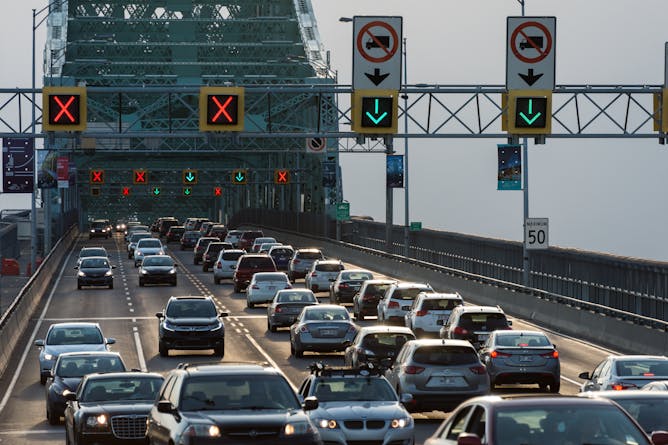|
It’s hard to believe, but there are over 200,000 Canadian children under the age of five who are not vaccinated against measles. To most of us, it’s utterly baffling why a parent wouldn’t protect their child when the science is so clear. Today in The Conversation Canada, economist Gregory Mason of the University of Manitoba looks at the anti-vaxx problem not from a health perspective, but instead explains how people process decisions through risk analysis. The key to better decisions, he says, is making the right information more accessible
and easy to understand.
That’s just one of several good reads we have for you on this Tuesday:
And finally…we tend to think of the Arctic as a barren land in terms of vegetation, but Karen Filbee-Dexter of Université Laval takes us underwater to explore the kelp forests of the Arctic that are expanding due to rising global temperatures.
Regards,
|

A risk analysis could offer insight into the anti-vaccination decision of some parents.
Shutterstock
Gregory C Mason, University of Manitoba
An economics risk analysis offers some insight into the modern anti-vaxx movement.
|

William “Rick” Singer, front, is alleged to have
helped some families secure fake learning disability diagnoses. Here he exits U.S. federal court in Boston after he pleaded guilty to charges in a nationwide college admissions bribery scandal, March 12, 2019.
(AP Photo/Steven Senne)
Allyson G. Harrison, Queen's University, Ontario
Abuses of disability diagnoses cheat students with disabilities who are now more likely to face skepticism about their diagnoses.
|

The Ford government’s cuts to libraries must be fought and ultimately rescinded.
Susan Yin/Unsplash
Samuel E. Trosow, Western University
The Ford government's cuts to library services are unwarranted and must be rescinded.
|

Policies that cut school expenditures under the premise of “doing more with less” can also contribute to a decrease in high school graduation rates that could easily cancel out those savings.
Shutterstock
Louis Volante, Brock University; John Jerrim, UCL; Jo Ritzen, Maastricht University
While the purpose of education can't be reduced to promoting economic growth, every child out of school represents both lost opportunities — and huge economic costs — for countries.
|

An array of leaves showing the diversity of kelp in underwater Arctic forests.
Karen Filbee-Dexter
Karen Filbee-Dexter, Université Laval
With global warming, underwater Arctic kelp forests are proliferating, and might be a potential resource.
|

Embouteillage sur le Pont Jacques-Cartier, à Montréal. Les véhicules canadiens sont gros, lourds et consomment énormément d’essence. La rigueur du climat? Plus de 80% des Canadiens vivent dans des zones urbaines où une petite voiture suffit.
Shutterstock
Blake Shaffer, University of Calgary
Les véhicules canadiens sont gros, lourds et consomment énormément d’essence. La rigueur du climat? Plus de 80% des Canadiens vivent dans des zones urbaines où une petite voiture suffit.
|
Business + Economy
|
-
Nir Kshetri, University of North Carolina – Greensboro
Cryptocurrency fraudsters have swindled their victims out of hundreds of millions – even billions – of dollars. What do they do to earn people's trust and then take their money?
|
|
Culture + Society
|
-
Pierre Raffard, Sorbonne Universités
While thought of as an unpretentious fast-food dish, the doner kebab is a symbol of the social, political and identity issues facing European society today.
|
|
Politics
|
-
Bianca Fileborn, University of Melbourne
At best, this 'debate' is a distraction from political action that could truly make a difference. At worst, it actively reproduces some of the conditions it seeks to disrupt.
|
|